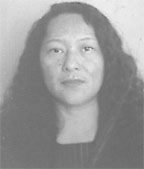Minister says it has ended, APA differs
By Gaulbert Sutherland
A miner working close to the “buffer zone” at Arau has been relocated and mining at Arau Top has ceased, Minister of Amerindian Affairs, Pauline Sukhai says but reports from the Region Seven (Cuyuni/Mazaruni) village states that mining continues at Arau Top.
Sukhai told Stabroek News on Monday that that the Guyana Geology and Mines Commis-sion (GGMC) had informed her of the developments during a meeting the previous Wednesday. However, when questioned about the current state of the water in the Arau River, she could not say how it was.
This newspaper had earlier reported after a visit to the area that mining operations at Arau Top had damaged a section of the waterway, leaving the water discoloured and filled with sediments. Residents said that they were severely affected and could no longer fish in the sediment-filled waters and wild animals that they hunted had moved farther away. Mercury was a concern for the villagers too, and some of the chemical, which they said was found in the river, was shown to this newspaper.
On Monday, Sukhai said that the situation at Arau was a “mining issue” and not one for the Ministry of Amerindian Affairs (MOAA), though upon receiving a “legitimate complaint”, the ministry can facilitate and make representation on their behalf and had done so. She noted that a complaint had been received from the Arau village council.
She related that the MOAA usually follow-up such cases with the GGMC and at a meeting two weeks ago, they were informed of the actions taken. The minister said that one miner whose operation was near to the buffer zone was relocated while “mining has been stopped in Arau Top”. She further asserted that actions were taken “to the satisfaction of the village council”.
However, when contacted, attorney-at-law David James, the legal representative of the Arau Village Council, which has a matter involving land before the court, said that this was not the case. He related that contact via radio phone was made with the remote hinterland community and he was told the operations continued at Arau Top, which is located upriver from the village and from where the Arau River starts to become discoloured.
He stated that, he was informed that with heavy rains recently the colour of the water had changed somewhat, as happened during such weather but mining operations still continued.
Meanwhile, Sukhai had denied that the river was polluted saying instead that there is turbidity. Insisting that there had been no pollution of the Arau River, she stated “what was reported was turbulence”. The minister declared that the MOAA was proactively pursuing mining issues and because of the ministry’s concern, they usually meet with the GGMC for updates adding that this was a “new trend” started when she came into office.
Meanwhile, the GGMC Acting Commis-sioner, William Woolford, in a letter to this newspaper said that the complaints by the Arau residents have been investigated. He said that there are no mining properties within the boundaries of the titled area of Arau. Further, “GGMC has stopped holders of mining properties which are outside of the titled area from conducting any operation that would affect the farms or the community or pollute the waters”, he wrote in the letter.
Woolford said that besides routine monitoring of the mining district by a Community Mines Ranger and Mines/Environmental Officers, officers of the GGMC visit communities to investigate specific complaints made to the Commission. The Commissioner stated that to date, for this year, there have been four such additional visits to Arau in February, March, May and June respectively, to investigate complaints and for matters pertaining to the pending court matter. He said that reports on each visit to the location were submitted by the Investigating Officers and “appropriate further actions were taken”.
 Woolford said that while the Commission endeavours to address breaches swiftly, “it is dependent upon other support systems which may not in the view of some persons work as quickly as desired. Breaches of some of the regulations require that criminal charges be instituted and as such when the charges are proffered, the Commis-sion has to await the normal court procedure process.”
Woolford said that while the Commission endeavours to address breaches swiftly, “it is dependent upon other support systems which may not in the view of some persons work as quickly as desired. Breaches of some of the regulations require that criminal charges be instituted and as such when the charges are proffered, the Commis-sion has to await the normal court procedure process.”
Arau residents had told this newspaper that the river water became discoloured several years ago and though reports were made to several agencies including the GGMC, the MOAA, the Environmental Protection Agency and the Office of the Prime Minister, it did not return to normal. They said that while officials visited and for a few days there might be an improvement in the water colour, when the officials left, the river returned to the “bad” state.




